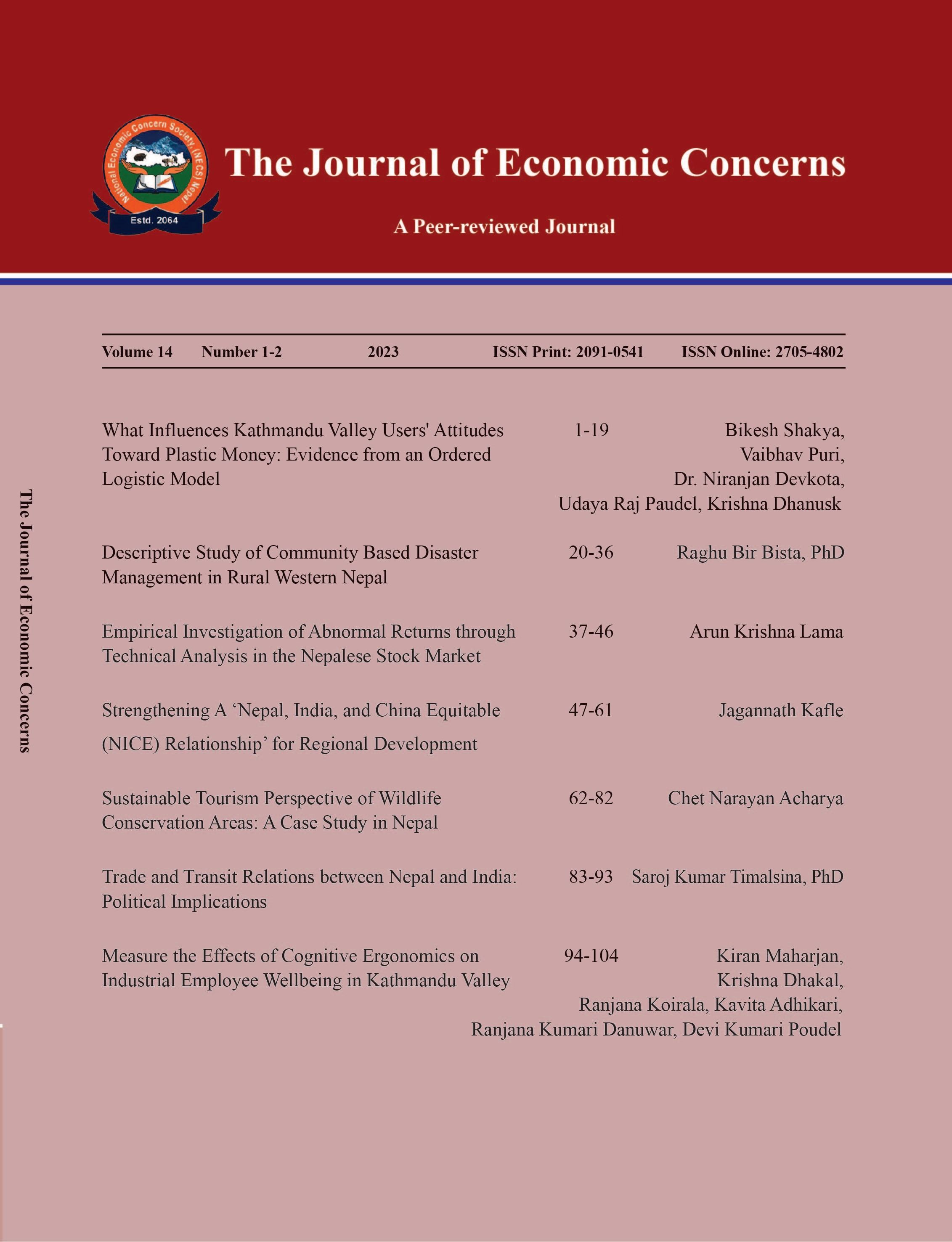Measure the Effects of Cognitive Ergonomics on Industrial Employee Wellbeing in Kathmandu Valley
DOI:
https://doi.org/10.3126/tjec.v14i1-2.62317Keywords:
Cognitive Ergonomics, Industrial Estate, Nepal, SEMAbstract
Ergonomics serves as a strategic approach aimed at diminishing occupational disease rates and enhancing overall working conditions to boost employee productivity. Acknowledging the pivotal role of employee participation in fostering positive organizational relations, this study delves into the impact of cognitive ergonomics on employee performance within Nepalese industrial settings. Employing an explanatory research design anchored in the Theory of Ergonomics, the investigation aims to unveil the correlations between work stress, workload, decision-making, and communication, and their collective influence on employee well-being. Focusing on industry employees in the Kathmandu Valley through probability sampling, a purposive sampling technique was employed, utilizing structured questionnaires administered to 161 respondents from Balaju, Patan, and Bhaktapur industries via the KOBO toolbox. Structural Equation Modeling (SEM) was utilized to analyze the effects of cognitive ergonomics practices, employing SPSS and AMOS applications to scrutinize relationships between dependent and independent variables. Findings shows that among four components of cognitive ergonomic such as work stress, workload, decision making and communication examine the significant impact on employee wellbeing which gives theoretical relevance in terms of theory of ergonomics. In conclusion, the adoption of ergonomics in the workplace is crucial for improving productivity by addressing health-related issues and fostering an employee-friendly environment, ultimately enhancing overall employee performance.




